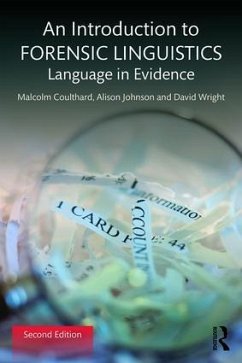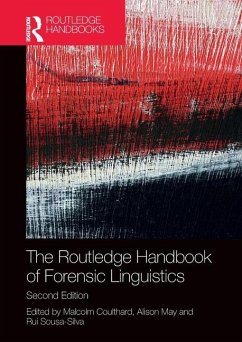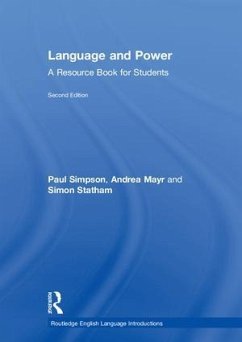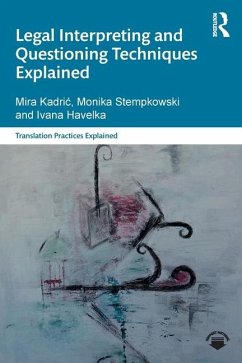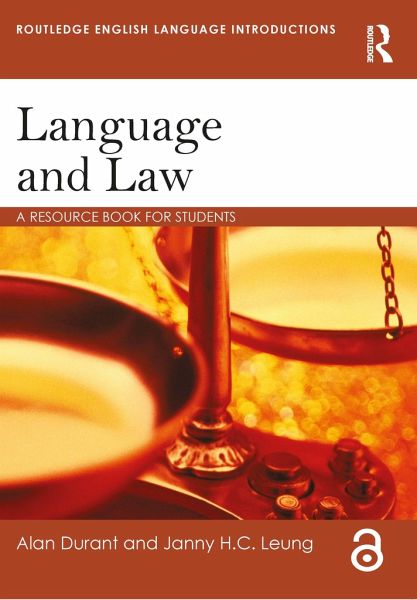
Language and Law
A resource book for students
Versandkostenfrei!
Versandfertig in 6-10 Tagen
45,99 €
inkl. MwSt.
Weitere Ausgaben:

PAYBACK Punkte
23 °P sammeln!
Language plays an essential role both in creating law and in governing its implementation. Providing an accessible and comprehensive introduction to this subject, Language and Law:describes the different registers and genres that make up spoken and written legal language and how they develop over time;analyses real-life examples drawn from court cases from different parts of the world, illustrating the varieties of English used in the courtroom by speakers occupying different roles;addresses the challenges presented to our notions of law and regulation by online communication;discusses the com...
Language plays an essential role both in creating law and in governing its implementation. Providing an accessible and comprehensive introduction to this subject, Language and Law:
describes the different registers and genres that make up spoken and written legal language and how they develop over time;analyses real-life examples drawn from court cases from different parts of the world, illustrating the varieties of English used in the courtroom by speakers occupying different roles;addresses the challenges presented to our notions of law and regulation by online communication;discusses the complex role of translation in bilingual and multilingual jurisdictions, including Hong Kong and Canada; andprovides readings from key scholars in the discipline, including Lawrence Solan, Peter Goodrich, Marianne Constable, David Mellinkoff, and Chris Heffer.
With a wide range of activities throughout, this accessible textbook is essential reading for anyone studying language and law or forensic linguistics.
Sections A, B, and C of this book are freely available as a downloadable Open Access PDF under a Creative Commons Attribution-Non Commercial-No Derivatives 4.0 license available at http://www.taylorfrancis.com/books/e/9781315436258
describes the different registers and genres that make up spoken and written legal language and how they develop over time;analyses real-life examples drawn from court cases from different parts of the world, illustrating the varieties of English used in the courtroom by speakers occupying different roles;addresses the challenges presented to our notions of law and regulation by online communication;discusses the complex role of translation in bilingual and multilingual jurisdictions, including Hong Kong and Canada; andprovides readings from key scholars in the discipline, including Lawrence Solan, Peter Goodrich, Marianne Constable, David Mellinkoff, and Chris Heffer.
With a wide range of activities throughout, this accessible textbook is essential reading for anyone studying language and law or forensic linguistics.
Sections A, B, and C of this book are freely available as a downloadable Open Access PDF under a Creative Commons Attribution-Non Commercial-No Derivatives 4.0 license available at http://www.taylorfrancis.com/books/e/9781315436258





